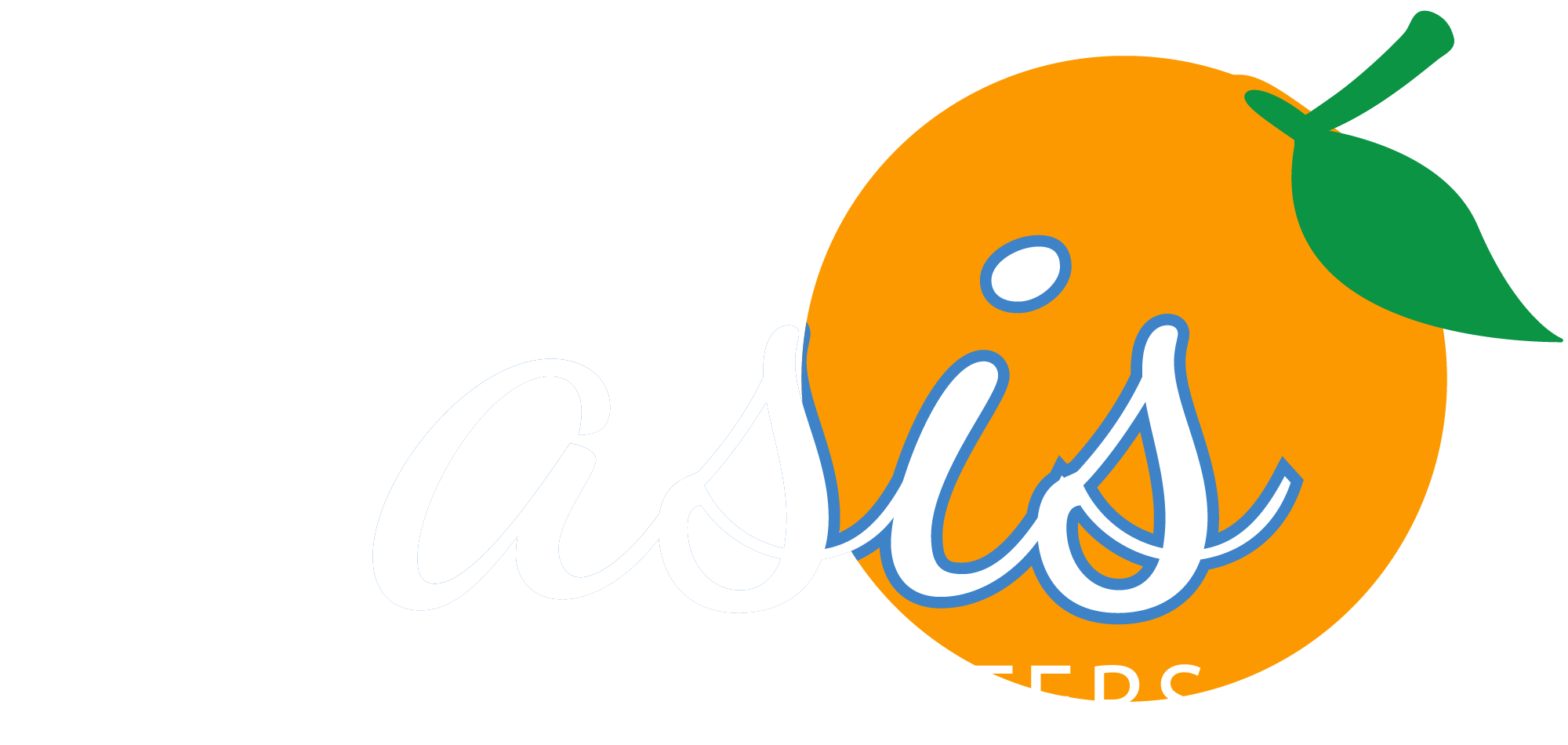Did you know nearly 50% of people with substance use disorders also have mental health issues? This fact, from the National Institute on Drug Abuse, shows how vital it is to treat mental health and addiction together. Not focusing on mental health can make recovery harder.
At Oasis Treatment Centers, we know how key mental health is in beating addiction. We offer a full approach that includes mental health support. This way, everyone gets care that fits their needs. It makes recovery better and helps keep a life free from addiction.

Key Takeaways
- Nearly 50% of those with substance use disorders also have mental health conditions.
- Ignoring mental health issues can impede successful addiction recovery.
- Holistic treatment approaches enhance long-term recovery success.
- Oasis Treatment Centers prioritize comprehensive mental health and addiction care.
- A strong foundation in mental well-being is crucial for addiction-free living.
The Connection Between Mental Health and Addiction
The link between mental health and addiction is key to understanding substance use disorders. When mental health issues like anxiety or depression meet substance dependency, it makes recovery harder. It’s vital to see that fixing mental health is a big part of beating addiction.
How Mental Health Impacts Addiction
There’s a strong link between mental health and addiction. A mood disorder can make someone more likely to use substances. For example, anxiety might lead someone to drink or use drugs, starting a cycle of addiction. The SAMHSA says not treating mental health can really up the chance of using substances.
Case Studies and Real-Life Examples
At Oasis Treatment Centers, we see how important it is to deal with mental health in recovery. Clients with depression or anxiety found it harder to stay sober. But with mental health therapy, many found it easier to beat their addiction. These stories show that mental health care is a key part of recovery.
| Condition | Impact on Recovery |
|---|---|
| Depression | Doubles the risk of relapse if untreated |
| Anxiety | Increases likelihood of substance use as a coping mechanism |
| Bipolar Disorder | Challenges with mood stability complicate recovery |
Adding mental health care to addiction treatment helps people recover better. Treating both mental and addiction issues leads to a stronger recovery plan. It makes beating addiction more complete and lasting.
The Role of Mental Health in Recovery
Mental health is key to getting better from addiction. It’s not just about stopping the addiction. It’s also about keeping your mind healthy for a lasting recovery. At Oasis Treatment Centers, they know that mental health is vital for recovery. They make sure it gets the care it needs.
Why Mental Health Shouldn’t Be Ignored
Ignoring mental health can lead to going back to old habits or not fully recovering. You need ongoing support for your mental health to deal with recovery’s challenges. Putting your mental health first helps you handle stress and avoid triggers that could lead to relapse.
Strategies to Maintain Mental Well-being
Here are ways to keep your mind healthy during and after recovery:
- Cognitive-Behavioral Therapy (CBT): This therapy is backed by science for managing stress and stopping relapse.
- Mindfulness: Being mindful helps you stay in the moment and lowers anxiety. It’s a big help for your mental health.
- Support Groups: Joining a group of people who get what you’re going through offers emotional and mental support. It makes recovery easier.
- Regular Exercise: Working out boosts your mood by releasing endorphins, which are natural mood boosters.
Understanding Dual Diagnosis Treatment
Handling mental health issues and substance use disorders at the same time can feel like a lot. That’s why dual diagnosis treatment is here to help. It treats both conditions together, giving you a full plan for recovery.
What is Dual Diagnosis?
Dual diagnosis, or co-occurring disorders, means you have mental health problems and a substance use disorder. You need a special treatment plan that deals with both issues at once. This way, you get help for your mental health and addiction together, leading to better recovery.
Benefits of Dual Diagnosis Treatment
Dual diagnosis treatment has many advantages. It tackles mental health and substance use disorders at the same time, lowering the chance of going back to old habits. You get care that fits your specific needs, which can make you healthier overall. Studies in the Journal of Substance Abuse Treatment show it’s a strong way to stay in recovery and feel good.
“Dual diagnosis treatment offers an integrated pathway to recovery, making it a crucial element for those with co-occurring disorders.”
Let’s look at how conventional and dual diagnosis treatments compare:
| Treatment Type | Focus Area | Key Benefits |
|---|---|---|
| Conventional Treatment | Single Disorder (either mental health or substance use) | Simplified focus, but may overlook interconnected issues |
| Dual Diagnosis Treatment | Both Mental Health and Substance Use Disorders | Comprehensive care, reduced relapse risk, improved overall health |
Places like Oasis Treatment Centers offer programs for dual diagnosis. They make sure you get the support you need to recover from both mental health and addiction issues.
Mental Health Services in Huntington Beach
Mental health services in Huntington Beach are designed for those on their recovery path. Places like Oasis Treatment Centers offer many services to help with mental health.

Local Resources and Support Systems
Huntington Beach has many local support options. These include support groups, outpatient programs, and community efforts. They are key in helping with mental health and recovery.
- Support groups offering peer connections
- Outpatient programs for ongoing care
- Community initiatives focused on mental health awareness
Using these local resources can really help with recovery.
Choosing the Right Facility
It’s important to pick the right place for addiction treatment. Here are some things to think about:
- Accreditation: Make sure the place is accredited and up to standard.
- Treatment Methodologies: Look for methods that are proven and fit your needs.
- Aftercare Support: Good aftercare planning is key for lasting success.
By looking at these factors, you can find a facility that meets your recovery goals and helps you move towards a healthier life.
Strategies for Improving Mental
Taking care of your mental health is key to lasting recovery. Activities like regular exercise, eating well, and being around positive people are very important. Oasis Treatment Centers’ staff highly recommends these activities.
The American Journal of Psychiatry says these lifestyle changes are crucial for better mental health in people getting over addiction. Personal recovery plans often include these steps to build mental strength and resilience.
Here are some strategies to help you recover in a lasting way:
- Engage in regular physical activity
- Maintain a balanced and nutritious diet
- Foster positive social relationships
- Practice mindfulness or meditation
- Seek ongoing professional support
Using these strategies can greatly boost your mental strength and overall health. These actions are not just helpful for now. They also create habits that support long-term recovery.
The Role of Therapy and Counseling
Therapy and counseling are key in helping people recover from addiction. They offer support and guidance through different methods. These methods help people face their problems and learn how to cope.

Types of Therapeutic Approaches
At Oasis Treatment Centers, we use many therapeutic methods for full care. Some top approaches are:
- Cognitive Behavioral Therapy (CBT): Changes negative thought patterns.
- Dialectical Behavior Therapy (DBT): Helps with managing emotions and being mindful.
- Motivational Interviewing: Boosts motivation to change.
These methods are backed by science and work well for addiction treatment, as shown by the American Journal of Psychiatry.
The Value of Personal and Group Therapy
Personal therapy gives you one-on-one attention to work on specific issues. Group therapy, however, creates a community feeling and shared experiences. It lets people learn from each other and build a support network.
By combining personal and group therapies, Oasis Treatment Centers offers a well-rounded way to help people overcome addiction.
Success Stories from Oasis Treatment Centers
At Oasis Treatment Centers, many people have found new paths to life. They share recovery success stories that show how care can change lives. These stories prove that with the right help, overcoming addiction and mental health issues is possible.
Oasis Treatment Centers focus on treating both mental health and addiction at the same time. This approach helps people recover fully and improves their chances of staying well.
“The compassionate care I received at Oasis Treatment Centers completely changed my life. Combining mental health treatment with addiction support gave me the tools I needed to overcome my challenges and build a healthier future.”
People who have recovered share their stories, inspiring others. Their stories show how a special kind of care can lead to big changes. They prove that with the right plan, people can achieve great things in their recovery.
Looking at these recovery success stories, it’s clear that a detailed and personal approach is key. Oasis Treatment Centers gives ongoing support. This helps people take back their lives and move past addiction and mental health issues.
Conclusion
The journey to recovery is deeply personal and complex. It combines mental health and addiction recovery. Seeing how these two are linked shows why mental health advocacy is key for success in recovery. This approach helps create a supportive space for those fighting addiction.
Oasis Treatment Centers show the strength of this combined care. They offer a place where recovery and mental health work together. Their focus on full support shows how people can live healthier after recovery. By tackling both mental health and addiction, they help pave the way for a future without substances.
Think about how mental health affects recovery as you consider your own or a loved one’s journey. Recovery is tough, but with the right support and focus on mental health, it can lead to lasting change. Oasis Treatment Centers are there to help, promoting a balanced recovery path that values mental health.
FAQ
How does mental health impact addiction recovery?
Mental health and addiction are closely linked. Almost half of people with addiction also have mental health issues. Not focusing on mental health can make recovery harder. At Oasis Treatment Centers, we make sure to include mental health in treatment for better recovery.
What are the benefits of dual diagnosis treatment?
Dual diagnosis treatment treats both mental health and addiction at the same time. This approach, used at Oasis Treatment Centers, lowers the chance of relapse and improves health outcomes. It’s a way to handle both disorders together for better recovery.
Why shouldn’t mental health be ignored during the recovery process?
Ignoring mental health can lead to incomplete recovery and a higher chance of relapsing. Mental health is key to overcoming addiction. Using therapies like cognitive-behavioral therapy (CBT) and mindfulness helps manage stress and keeps mental health strong during recovery.
What mental health services are available in Huntington Beach?
Huntington Beach has many mental health services, including Oasis Treatment Centers. There are support groups and outpatient programs for different recovery needs. When choosing a facility, look at accreditation, treatment types, and aftercare support.
What strategies can improve mental health in recovery?
Improving mental health in recovery means exercising regularly, eating well, and staying connected with others. At Oasis Treatment Centers, we create personalized recovery plans that include these steps to build mental strength and support long-term recovery.
What therapeutic approaches are used at Oasis Treatment Centers?
Oasis Treatment Centers use therapies like cognitive-behavioral therapy (CBT), dialectical behavior therapy (DBT), and motivational interviewing. These methods are backed by science and focus on both addiction and mental health issues.
Are there success stories from Oasis Treatment Centers?
Yes, Oasis Treatment Centers have many success stories. These stories show how treating both mental health and addiction together can lead to lasting recovery. They inspire and prove that with the right care, recovery is possible.
